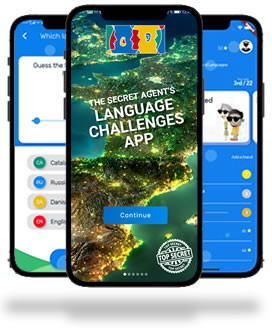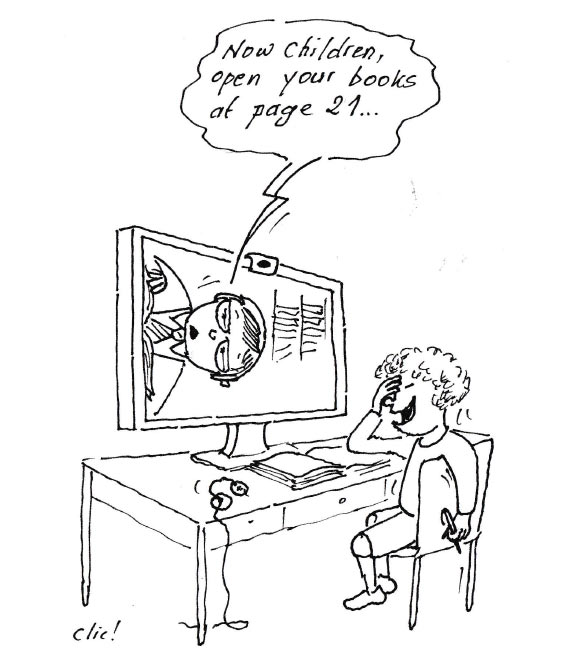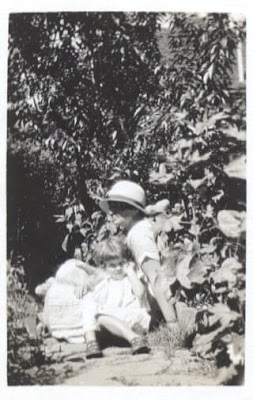Joan Aiken
credits: Rod Delroy
via NYT
“Stories are mysterious things; they have a life of their own. Animals don’t tell each other stories — so far as we know! Man is the only creature that has thought of telling stories, and, once a story has been written or told, it becomes independent of its creator and goes wandering off by itself. Think of Cinderella, or Beauty and the Beast —we don’t know where they came from, but they are known by people all over the world."
Joan Aiken, introduction to her stories
Google Doodle 91st anniversary of Joan Aiken
doodler : Kevin Laugh
Google Doodle:
Kevin Laughlin, doodler
The Wolves Chronicles include a dozen books published over a 43-year span, following the adventures of several children in an alternate history of England.
The Wolves of Willoughby Chase
Joan Aiken, 1st edition 1962
capa: Edward Gorey
Synopsis:
The novel is the first in the Wolves Chronicles, a series of books set during the fictional early-19th century reign of King James the third. A large number of wolves have migrated from the bitter cold of Europe and Russia into Britain via a new "channel tunnel", and terrorise the inhabitants of rural areas.
illustration from The Wolves Chronicles
Joan Aiken
illustration: Pat Marriott
Aiken wrote the book over a period of years, with a seven-year gap due to her full-time work; the success of this, her second novel, enabled her to quit her job and write full-time.
The Wolves Chronicles
Joan Aiken
The Wolves Chronicles include a dozen books published over a 43-year span, following the adventures of several children in an alternate history of England.
The Wolves Of Willoughby Chase received immediate acclaim both in Britain and the United States, where Aiken also has a devoted following. She continued the series with other titles, including Black Hearts In Battersea (1964), The Whispering Mountain (1968), for which she won the Guardian children's book prize, and Dido And Pa (1986).
The Whispering Mountain
Joan Aiken
Aiken books are rich in atmosphere and intrigue. They also include memorable characters, such as the resourceful Cockney heroine Dido Twite and the wicked governess Miss Slighcarp, who is every bit as dangerous as the ever-lurking wolves themselves.
Joan Aiken
credits: Joan Aiken Estate
via The Guardian/ Children's books
Some biographical notes:
Joan Aiken was born as I wrote, on 4 September 1924, em Rye, East Sussex. Daughter of the American poet Conrad Aiken and Jessie MacDonald, graduada pelo Radcliffe College.
Her father the poet Conrad Aiken, Pulitzer Prize–winning poet, and later her stepfather, the English novelist Martin Armstrong, surrounded her by conversations about the technique of crafting a short story, and what were the key ingredients of a good ghost story - both genres in which she came to excel.
She was encouraged to write by all the family, after all, but it was the latter who provided the particular starting point.
Julia Eccleshare, The Guardian, Books
Joan Aiken, at 9
credits: Joan Aiken Estate
Having completed her formal education, she turned to writing children’s novels and fiction stories at a young age.
Joan didn’t go to school, she was taught at home by her mother and collected her stories in a notebook she bought at the village shop when she was five.
Joan Aiken, note book
credits: Joan Aiken Estate
via The Guardian, Children's Books
By the age of sixteen, she had already penned her first full-length novel and the following year, had her first short story for adults printed in a publication. It was in 1941 that her first children’s story was broadcasted on the BBC’s Children’s Hour.
From 1943 to 1949, she worked for United Nations Information Centre in London as a librarian.
In her lifetime, she had penned more than hundred books, which include a dozen collections of fantasy stories, plays, poems, historical novels and modern tales for adults and children.
The Shadow Guests
Joan Aiken
She is noted for penning spine-chilling thriller novels for children such as ‘The Windscreen Weepers’, The Shadow Guests, ‘A Whisper in the Night’, and ‘A Creepy Company’. In the same genre, she wrote an adult novel as well which was known by the name ‘The Haunting of Lamb House’.
In her lifetime, she wrote on various genres including magic, fantasy, adventure and thriller. In total, she came up with almost 92 novels including 27 novels for adults, as well as plays, short stories and poems.
She had an unusual ability to write for all ages with such a fine sense of the differences between her audiences that she could match the content and the style exactly to the reader.
Joan Aiken at The Hermitage, her home, 1984
Joan Aiken produced more than a hundred books. Aiken wrote in all genres - poetry and plays - as well as having a particular gift for stunning short stories. Here, she was just as much at home with fairy stories, as in A Necklace Of Raindrops (1968) and folktales collected in The Kingdom Under The Sea (1971), as she was with such horror stories as A Bundle Of Nerves (1976).
Not many know that this established children’s short story writer and novelist who is credited for the novel, ‘The Wolves of Willoughby Chase’ was a lifelong fan of ghost stories, particularly those of M. R. James, Fitz James O'Brien and Nugent Barker.
A Necklace of Raindrops
Joan Aiken,1968
She made it to the runner up position for the Carnegie Medal from the Library Association, after her book was recognized as the year's best children's book by a British subject.
Aiken died at home in Petworth, West Sussex, UK, at the age of 79 in 2004.
credits: Cosia Herbia
via Quartz
Education:
"It therefore seems fitting that her writing life should be framed by two stories for the young. Her first was written as a 16-year-old for the fledging BBC Children's Hour; her last, Midwinter Nightingale, the long-awaited addition to her prize-winning series, which began with The Wolves Of Willoughby Chase, will be published in a couple of months' time."
Julia Eccleshare, The Guardian, Books
Midwinter Nightingale
Joan Aiken
Reading is for many of us and students a regular source of joy, perspective, and ideas, which enables us and them to grow personally, to younger readers, to develop reading skills and grammar or vocabulary.
It occurred to me that there is a simple pedagogical principle that explains the appeal of very early learning, homeschooling: Reading began at home, with parents since childhood.
Joan Aiken was passionate about the power of reading aloud, the shared experience of communication through stories, and often talked about memories of her own childhood and the many books that were read to her and her siblings.
In one of her talks to writers and teachers she became quite fierce, saying if parents couldn’t spare an hour a day to read to their children, they didn’t deserve to have any!
But sometimes this is not possible. There are some poor readers among parents.
So educators are important references to students. We must valorise books and read a lot in the classroom. We can do a better job if we are rich readers.
Arabel and Mortimer stories
Joan Aiken
illustration: Quentin Blake
This act of pleasure of reading must start in kindergarten to be continued in primary, elementary and secondary education.
Arabel's Raven
Joan Aiken
illustration: Quentin Blake
"As she would sometimes say at the end of her stories:
‘There is no moral to this story I’m afraid.’
And nor need there be, what matters is the voice."
Joaniken A
Reading out loud is a pleasant way that students love the most. Invite your youngest pupils to listen Arabel and Mortimer here
One important point: schools need more time for reading aloud, choosing and sharing the pleasure of reading books and not just extracts. However, teachers can make reading exciting all through the year
Joan Aiken website
Resources:
- Books by group: students can explore the different books and get interesting information.
- There is a Letter Dear Reader for all students who love to read. Invite them to read the letter and discuss with students the comprehension of the text and ideas. A lovely letter!
Letters from you
- If they like communicate with the author about her books, ideas, and different subjects, here Letters from You. They can write. Here the send by post. Here the address
- Aiken and her illustrations - in her own words : She present and hpnour all the illustrators of her books
Film:
The Wolves of Willoughby Chase, film
Stuart Orme, 1989
Willoughby Chase is the grand but remote home of Sir Willoughby and Lady Green and their daughter Bonnie.
"Aiken was the most modest of authors, though she certainly knew her worth. She was one of the many professionals of her time who never courted publicity, though never shunned it either."
96th Birthday celebration of Joan Aiken by her daughter Lizza:
"May All Your Way Be Strewn With Flowers"
For Joan Aiken birthday celebration Lizza proposed a fun story, about the book All You’ve Ever Wanted
"Joan Aiken’s modern fairy tale, All You’ve Ever Wanted is the title story of her first book published in 1953, and imagines an unfortunate orphan called Matilda, who is showered with magical wishes that will keep coming true. Think of the joys of spring – lovely at first when the garden is busting out all over, but what if it can’t be stopped…?"
Every year Matilda receives a birthday greeting in a pink and silver envelope from an absent Aunt (unfortunately also a witch) invariably couched in the usual poetic and flowery terms:
‘Each morning make another friend,
Who’ll be with you till light doth end…’
Resources +
Stories ought not to be just little bits of fantasy that are used to wile away an idle hour; from the beginning of the human race stories have been used - by priests, by bards, by medicine men - as magic instruments of healing, of teaching, as a means of helping people come to terms with the fact that they continually have to face insoluble problems and unbearable realities."




































